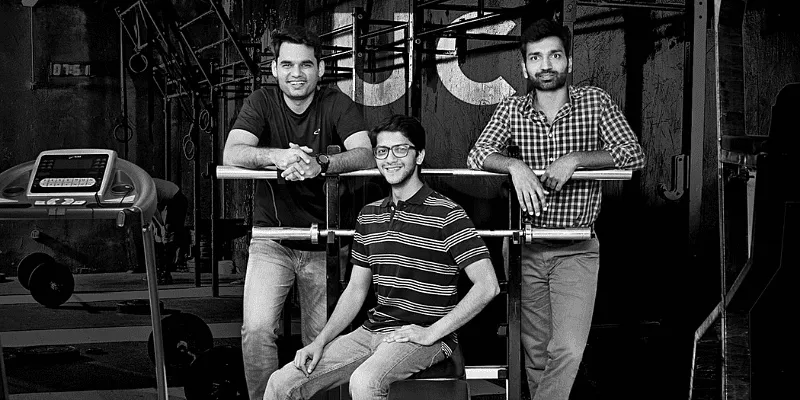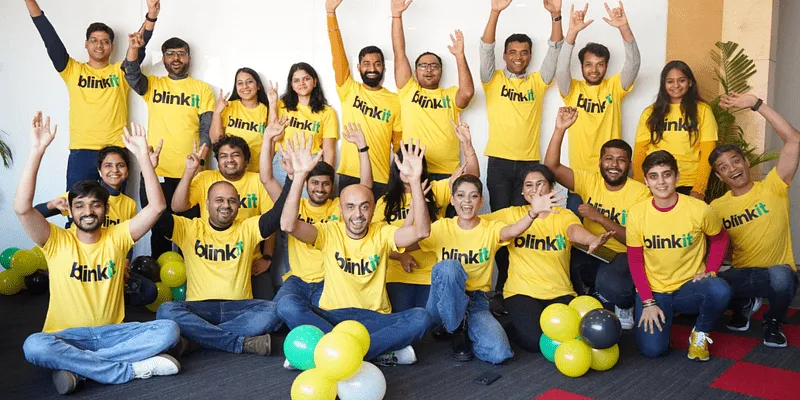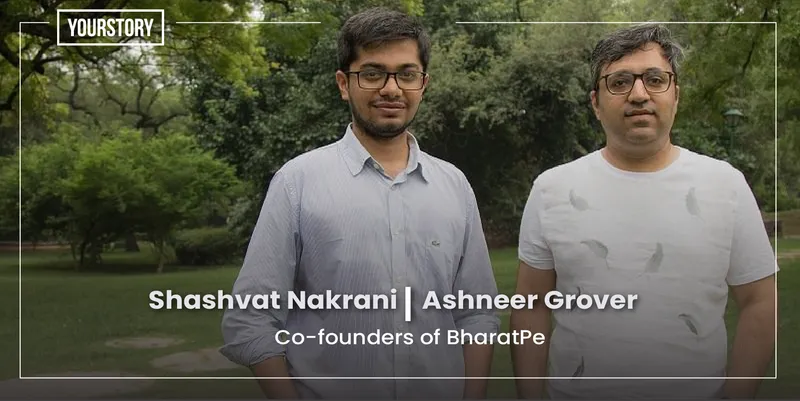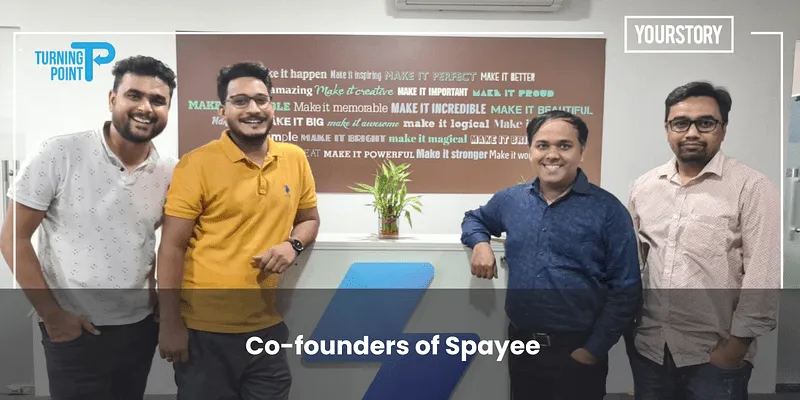[Year in Review 2021] Top 10 stories of companies and their ‘Turning Point’
The Turning Point is a weekly series that focuses on the moment an entrepreneur hits upon the winning idea. This week, we bring the top 10 Turning Point stories that our readers enjoyed the most this year.
“If something is important enough you should try. Even if the probable outcome is failure,” said Elon Musk back in 2016, and it couldn’t hold more truth in the world of entrepreneurship - how will you ever know unless you try it.
Many success stories have sprung up from just that one try, acting on that one inspirational idea - which often becomes the turning point for an entrepreneur.
YourStory’s The Turning Point, is a weekly sequence that was started in August 2019, where we bring you stories about those who dared to take that first step, and lived to tell the tale. It wasn’t always success at first shot, or even the second or third time, but resilience and perseverance are the bellwethers of successful entrepreneurs, and give up they did not.
In 2021, the stories under this series looked at struggles in the early stages and what entrepreneurs did to overcome them. Through these stories, we tried to look at what worked and what did not, especially given the pandemic circumstances.
Here’s a look at the top 10 The Turning Point stories in the series that our readers enjoyed the most this year.
Urban Company
– earlier known as Urban Clap – is not the first startup Varun Khaitan, Abhiraj Bhal, and Raghav Chandra launched. The three engineers decided to quit their cushy jobs to start a service that solved a primary customer need in India: home services. The startup, launched to create a completely new category in 2014, has now become the largest home service provider in India.
It is really an interesting story on how everything connected, and, today, Urban Company has come a long way. Abhiraj and Varun, friends since their IIT-Kanpur days, often connected and spoke about entrepreneurship.
After a brief corporate career at Boston Consulting Group (Abhiraj), and Qualcomm (Varun), they both decided to take the startup plunge – they launched Cinemabox, a service that allowed travellers to stream movies on their phones in planes, trains or buses, in early 2014. But this startup shut down within six months.
Around that time, they met Raghav Chandra, an ex-Twitter engineer through mutual friends. Raghav had also tried his hands at entrepreneurship with Buggi, an on-demand autorickshaw hailing platform that shut down soon after its pilot.
The trio connected and had stayed in touch. During one of their “intense” conversations, Abhiraj, Varun, and Raghav realised there was a gaping hole in the Indian home services market, “a lack of transparency and credibility”.

Urban Company co-founders (from left to right): Abhiraj, Raghav, and Varun
All of them at some point faced issues in finding the right plumber, electrician, or beautician. The trio realised local services as an industry is such a central part of our lives but extremely broken. This was their aha moment, and Urban Company – then Urban Clap - was born in November 2014.
Read the story here.
IppoPay
Chennai-based fintech startup , a B2B payment aggregator that enables small businesses, SMEs, freelancers, and homepreneurs across Tier II, Tier III, and rural areas to collect payments from their customers, was started during the pandemic. The startup processes over 1 crore transactions, from 5,000 merchants.
But for its Co-founder and CEO Mohan K, this is not a result of just a year or two, but of a decade of hustle.
Hailing from a family of fishermen in Thamaraikulam, a small village in Rameswaram, Tamil Nadu, he did his schooling from the government secondary school in Tamil medium. In 2006, he moved to Chennai and joined a small company as a programmer. But he always wanted to start his own company. In 2010, Mohan started a web development company that would integrate payment solutions for merchants.
In 2018, Mohan got a chance to attend a fintech event in the UAE, where he planned to get more clients and funding. Here, he met Dubai-based entrepreneur Omar Bin Berk, who invited him to become the Co-founder and CTO of a company called Foloosi and build the tech to solve last-mile fintech problems in the UAE.
Mohan started working with Foloosi in April 2018, and even invested a few lakhs in the company. The team developed a payment gateway and Foloosi was officially launched in February 2019. The venture also garnered angel funding of half a million dollars to expand the business in the UAE. But Mohan was still feeling unsettled. He says he had an epiphany: why wasn’t he bridging this gap in India?
Mohan soon decided to create a similar fintech solution focused on small businesses for Bharat in local languages, starting from his home state, Tamil Nadu.
Mohan quit Foloosi and launched IppoPay in June 2020 to cater to small businesses in Tamil Nadu. He roped in his childhood friend JaiKumar as the Co-founder and CTO and set up a team of 15 members and focused on small merchants and SMEs.
The company came up with a beta version in November 2020 and started penetrating deeper in Tamil Nadu. From transactions worth Rs 2 crore in October 2020, it quickly reached the Rs 800 crore mark in March 2021, claims the company.
Read the story here.
Grofers (now blinkit)
Grocery delivery startup , which turned unicorn this year, and most recently rebranded itself to Blinkit, was founded by Albinder Dhindsa and Saurabh Kumar in December 2013. It was started to solve the on-demand pick-up and drop-off services for Indian consumers in partnership with local stores, which were struggling to solve this problem.
Interestingly, Albinder Dhindsa is an ex-Zomato executive. In the initial years of starting Grofers, he had shared with YourStory that they never planned to get into the food delivery space.
After completing his graduation from IIT Delhi, Albinder went to work in the US where he met Saurabh. The duo used to work in the transportation and logistics field, and worked on quite a few projects together.

Later, Albinder left his job to get an MBA from Columbia University and then joined Zomato. Meanwhile, Saurabh was trying his hands at entrepreneurship. After graduation, he went on to work in a few corporate setups before entering the startup world with Rasilant in 2011 as the COO.
In 2013, Saurabh started Onenumber. The initial idea was to provide on-demand pick-up and drop service from neighbourhood shops. They started out with pharmacy shops, grocery shops, and restaurants, but quickly dropped restaurants as there was a lot of competition.
Saurabh, who was based out of Gurugram then, spoke to a lot of merchants and realised the pain points these shops had with delivery logistics. This became the eureka moment. Taking a cue from this, he quickly pivoted and rebranded the company as Grofers.
While Saurabh had started working on Grofers, Albinder initially joined the project part-time. After seeing the opportunity in the hyper-local space, Albinder decided to join full time in 2014 as a co-founder. This year, Saurabh Kumar stepped down from his operational roles at the company and said he will only be a shareholder and a board member.
Read the story here.
Digital Minds
Utkarsh Ayush realised very early in life that he is passionate about politics and does not want to work for any big company. Rather, his interest lay in trying to uplift his home state Jharkhand. In 2019, he turned this dream into reality with , a startup to help political parties and politicians to use technology.
According to Utkarsh, Jharkhand was lagging severely in the use of technology. The IIM alum launched Digital Minds Media Services in 2019, and is currently working with four MPs, eight MLAs, and one public figure in Jharkhand.
While legal agreements dictate Utkarsh cannot share more details about his clients, he says that his team — made up of IIT and IIM graduates — handle the “who’s who” of the Jharkhand government. And the turning point? After graduating from IIM Rohtak in 2019, Utkarsh, along with his friends started taking up freelance projects to help the government with digital transformation.
In a very short time, they realised there was a big tech gap to be filled when it comes to branding and engaging with local citizens. And this knowledge gave birth to Digital Minds.
“Over the past few years, Indian politics has seen a trend of managers, engineers, and corporate executives managing or working on campaigns. The growing importance of technology, analysis, war room strategies, and surveys has resulted in politicians across parties making a beeline for technocrats. I was influenced by this trend and wanted to create a grassroots impact in Jharkhand’s socio-political ecosystem. I could do this by providing digital transformation services to those leaders who were not very digi-savvy,” says Utkarsh.
What makes Digital Minds stand out? The CEO says that being locals, he and his team understand the languages and dialects of Jharkhand and connect better at a grassroot level.
The company is profitable and has been marking remarkable growth ever since.
Read the story here.
Medulance
Losing someone you love is the hardest thing to deal with. It leaves a vacuum and that unsettling feeling when someone you love is no more. Something similar happened with Ravjot Arora when he lost his grandfather in 2010. What unsettled him was not just the demise but also the circumstances leading up to it when the family could not get a proper emergency service on time.
Ravjot’s family did not know which ambulance to call or how, and by the time the family took his grandfather to the hospital in their car, he was no more.
Ravjot decided to turn his grief into something useful and started researching more about medical emergency services in India. This eventually led him to start along with his friend Pranav Bajaj in 2017.
The Delhi-based healthtech startup is an ambulance and paramedical services aggregator that was started to increase the reliability and access to ambulance services in India.
Like Ola and Uber’s technology, Medulance enables users to book an ambulance using the mobile app and the nearest available ambulance will be assigned to the user to ensure minimum turnaround time for emergency care.
Read the story here.
Dabble
“I have always believed in following my energy and intuition to create the life I love,” says Karen Saldanha, Co-founder of , a startup that makes toxin-free paints, crayons, and art kits for the 0 to 6 age group.
Started by Karen and Neha Bajaj in May 2018 to manufacture art products from organic materials, Dabble is an outcome of both the founders’ decision to create something that has impact, and a business that will grow in the years to come.
The child-focused startup has come a long way in two years. It won an award for social impact and innovation from the Information Technology, Biotechnology, and Science and Technology Department of the Karnataka government. The award came with a grant of Rs 25 lakh for product research.
It has acquired more than 7,000 customers in less than two years, and is now looking to achieve 100 percent sales growth this year, Neha says. She adds that the business was profitable and broke even at the end of its first year of business itself.
How did the mothers come together? Karen worked with ICICI Prudential in sales, learning, and development for around a decade. In 2010, she joined IIM Bangalore’s women entrepreneur programme. After the programme, she started a corporate training practice. Shortly afterwards, she felt a need to use Arts as an expression in her work. It was then that she joined the one-year expressive arts therapy course.
Neha, on the other hand, worked as an advertising and editorial photographer for more than 12 years. When she stopped feeling enthusiastic about her work, she decided to pursue art therapy and chanced upon the expressive art therapy course in Bengaluru.
This is where the founders met. They became close while pursuing the course, and went on to give birth just four days apart. Karen and Neha were both sourcing art products for their children from abroad and realised the need for safer options at home.
Neha and Karen soon started asking themselves, “Why safe art only for our kids, why not for the children of the world? How about making our own crayons?”
These questions ultimately led to the launch of Dabble. Neha and Karen spent months researching crayons, natural waxes, and the first experiment was conducted in Neha’s kitchen. “We created our first crayon in August 2017,” Neha says.
Read the story here.
BharatPe
The fintech startup that needs no introduction, started from an event. During a tech event in 2018, IIT Delhi alumni Ashneer Grover and Shashvat Nakrani discussed about the challenges faced by the fintech industry. The gaps stuck in their minds. And in less than three months, they launched fintech startup , which is now expecting to hit $6 billion in annual transactions by 2022.

Delhi-based BharatPe empowers shop owners to accept payments from any payment app for free. Merchants can sign up instantly and start accepting payments directly into their bank account and have the flexibility to earn up to 12 percent interest on those payments and even take loans whenever they need. BharatPe makes payment acceptance simple by offering merchants a single QR to accept all payment apps such as Paytm, PhonePe, Google Pay, BHIM, and more than 150 other UPI apps.
Read the story here.
Zetwerk
B2B manufacturing startup Zetwerk, a fast growing unicorn, was started three years ago because the four founders “found each other at the right place, at the right time”, according to Amrit Acharya, Co-founder and CEO of .
The startup was launched in May 2018 by four IIT alumni: Amrit, a former associate at McKinsey & Company and former ITC executive; Rahul Sharma and Srinath Ramakkrushnan, who earlier worked at logistics firm Blackbuck, and Vishal Chaudhary, Rivigo’s former business lead. Srinath was also a part of OfBusiness’ founding team.
In a conversation with YourStory, Amrit Acharya, CEO and Co-Founder of Zetwerk, shared the startup that originally started as a SaaS platform shortly pivoted to a business-to-business marketplace for manufacturing items. This was the turning point for the company.
Read the story here.
CoinDCX
If you are into cryptocurrency, then is a name that you are all too familiar with.
The company was started in March 2018 by IIT-Bombay graduates Sumit Gupta and Neeraj Khandelwal who wanted to build a centralised cryptocurrency platform. In just three years, the startup entered the unicorn club with a valuation of $1.1 billion, after it raised Series C funding of $90 million in August.
Sumit and Neeraj had known each other since 2007. They first met in Kota, Rajasthan, while preparing for their IIT entrance exams, and became good friends and worked their way into IIT-Bombay. They were also inclined towards entrepreneurship. After college Neeraj ventured into his family business to understand the nuances and challenges of being an entrepreneur. Post this, he joined hands with many startups to drive their technical architecture. Sumit joined an multi-national company (MNC) in Tokyo, which he says, ‘helped him understand the technicalities and culture within a corporation’.
In 2014, when Bitcoin was gaining traction, Sumit was introduced to distributed ledger technology. He realised that blockchain traders must keep up with thousands of crypto trades in seconds, and there was no platform to trade from.
He then got the idea of bringing together various decentralised marketplaces and cryptocurrencies, which are the medium of transaction in these marketplaces. He contacted his friend Neeraj, and both collaborated to close the key market gaps between this new technology and consumers globally. In 2018, after studying the market and the future of crypto technology, Sumit and Neeraj launched CoinDCX.
Read the story here.
Spayee
When Sandeep Singh, Gourav Kakkar, Aniruddha Singh, and Vijay Singh teamed up to launch edtech company seven years ago, they did not imagine their hustle would see such great returns. As Sandeep tells YourStory, the turning point for the company was not when they started up, but when they decided not to give up.
Started in 2014, Noida-based Spayee, a white label course SaaS platform, enables anyone to create, market, and sell their courses online. Spayee allows content creators to produce customised courses in the form of audio and video tutorials, PDF documents, quizzes, assignments, and live classes. It is also a YourStory’s Tech30 alumnus (2020). The edtech startup has now been acquired by Unacademy's Graphy for $25 million.

While Spayee Labs was started in 2014, the white-label product was launched only in 2018. The co-founders met each other while working for a US-based publishing company, Innodata Inc. Aniruddha and Sandeep were also preparing for UPSC exams. For the preparation, they used to collect notes from different sources like newspapers, magazines, YouTube videos, and other websites. While working at Innodata, the four friends felt that India was lagging when it comes to digitisation in education.
The team pitched the idea to Times Internet and received funding and incubation under the TLabs programme. Sandeep recalls, the day TLabs agreed to back the idea back in 2014, they quit their jobs to work on Spayee.
This is how Spayee took off. Like any other entrepreneurial journey, Spayee's journey also witnessed hiccups. The founders had to perform many iterations and pivots of the product when the challenges arose.
In 2018, the founders sat together and asked themselves: “should we shut down?” But they decided to give it another shot, and that became the turning point for Spayee.
Read the story here.
Edited by Anju Narayanan


![[Year in Review 2021] Top 10 stories of companies and their ‘Turning Point’](https://images.yourstory.com/cs/2/70651a302d6d11e9aa979329348d4c3e/feature-04-1639648169326.png?mode=crop&crop=faces&ar=16%3A9&format=auto&w=1920&q=75)








